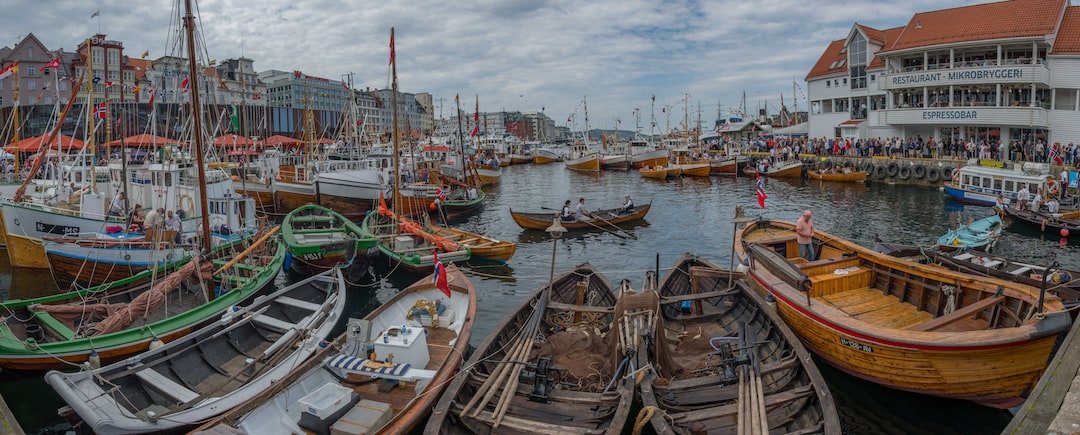Port Clusters and Regional Cooperation: Unlocking Maritime Trade Potential
Category : Port Partnerships Sister Ports Collaboration Agreements | Sub Category : Port Clusters and Regional Cooperation Posted on 2023-07-07 21:24:53

Port Clusters and Regional Cooperation: Unlocking Maritime Trade Potential
Introduction:
The maritime industry is important in international trade. Goods and services can be moved across borders efficiently if the port is used. Regional cooperation and port clusters have emerged as key drivers of economic growth. The purpose of this post is to explore the concept of port clusters, examine the benefits of regional cooperation, and highlight successful examples from around the world.
Understanding Port clusters is important.
A port cluster is a group of neighboring ports that work together to enhance trade efficiency. Port clusters foster sustainable economic development and maximize resource utilization by using proximity and cooperation. These clusters usually consist of a central port that is surrounded by satellite ports that capture and redistribute maritime cargo flows.
The benefits of port clusters
1 Port clusters allow for economies of scale, driving operational efficiency through infrastructure sharing, streamlined customs procedures, and coordinated investments. Reduced costs, shorter turn around times, and increased throughput are the result of this optimization.
2 The port clusters work together to improve multimodal connections by connecting road, rail, and inland waterway networks. The seamless connection enables efficient distribution of goods to and from the hinterland, augmenting the trade competitiveness of the region.
3 The port clusters have a positive spillover effect on the economy. Investments in maritime infrastructure and logistics attract businesses that rely on efficient supply chains, which in turn will lead to job creation, trade diversification, and economic growth in the region.
Regional cooperation is a key to success.
Regional cooperation among various stakeholders, including port authorities, government agencies, private entities, and local communities, is what makes port clusters possible. There are benefits to effective collaboration in areas such as information sharing.
1 Policy alignment is possible by regional cooperation. The alignment simplifies cross-border trade and creates a level playing field for businesses.
2 Capacity Building is a process of sharing knowledge and building capacity within the port cluster. This leads to the adoption of cutting-edge technologies.
3 Joint marketing initiatives help to attract cargo owners and shipping lines to the port cluster. Promoting the cluster as a unified and integrated trade gateway will boost its competitiveness.
Examples that are successful.
1 The port clusters of Rotterdam and Antwerp have been pioneers in regional cooperation. Sharing a common network of ports, these neighboring ports work together in areas such as hinterland, environmental initiatives, and research and development to become one of the world's leading maritime gateways.
2 The development of the Singapore Straits-Malacca Ports (SMP) cluster was the result of cooperation between Singapore and Malaysia. The location of both countries has been harnessed to create a competitive port network.
Conclusion
Port clusters and regional cooperation are important in helping to open the maritime trade potential of a region. The synergy and collaboration within these clusters result in improved efficiency, economic growth, and jobs. The concept of port clusters and regional cooperation can help countries take advantage of the huge opportunities offered by the global maritime trade landscape.
Leave a Comment:
SEARCH
Recent News
- Navigating the Guangzhou-Zurich Business Landscape: A Comprehensive Directory
- Revolutionizing Sound Quality and Mobility: Exploring the World of Guangzhou Wireless Microphones
- Understanding Weight Management in Pets in Guangzhou
- Managing Weight in Guangzhou: Tips for Success
- Exploring the Thriving Vietnamese Manufacturing Industries in Guangzhou
- Exploring the Vibrant Vietnamese Export-Import Companies in Guangzhou
- Are you interested in exploring the vibrant city of Guangzhou in China and then immersing yourself in the picturesque charm of Geneva, Switzerland? This exciting travel itinerary from Guangzhou to Geneva offers a perfect blend of culture, history, and natural beauty for an unforgettable journey. Let's dive into the details of this enchanting travel adventure.
- Are you looking to travel from Guangzhou to Frankfurt? In this blog post, we will explore the best ways to make this journey.
READ MORE
4 months ago Category : miscellaneous

Navigating the Guangzhou-Zurich Business Landscape: A Comprehensive Directory
Read More →4 months ago Category : miscellaneous

Revolutionizing Sound Quality and Mobility: Exploring the World of Guangzhou Wireless Microphones
Read More →4 months ago Category : miscellaneous

Understanding Weight Management in Pets in Guangzhou
Read More →4 months ago Category : miscellaneous
